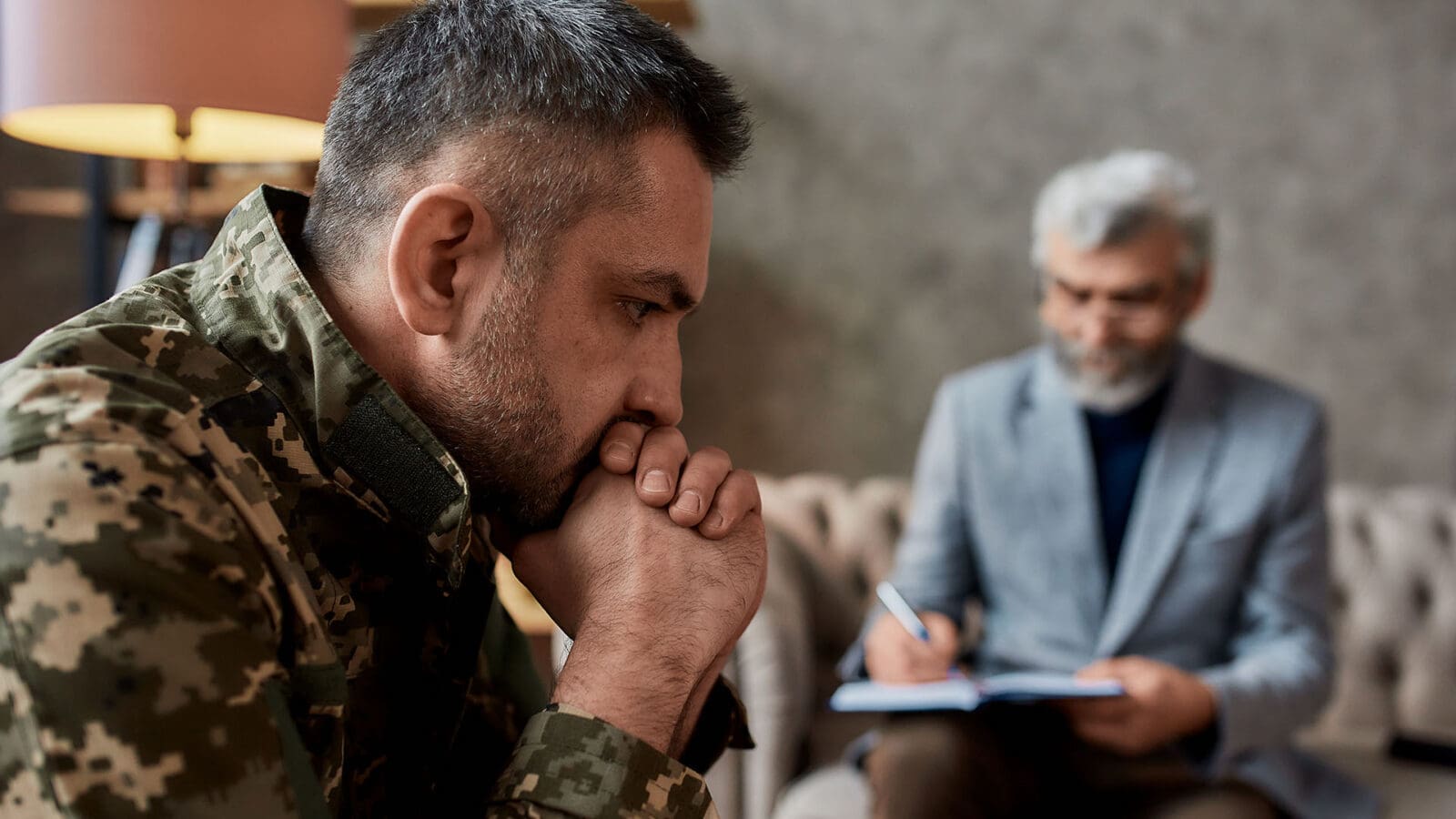
Veterans Disability for Sleep Apnea
Military service can cause a veteran to develop sleep apnea, exposing them to a number of other health issues. The VA provides disability benefits to vets with service-related sleep apnea.
Summary
- Given the number of service-related conditions that are associated with sleep disorders, a significant number of veterans are eligible for VA sleep apnea ratings.
- Symptoms of sleep apnea include snoring, fatigue, moodiness, and frequent episodes of oxygen deprivation during sleep.
- Veterans who disagree with their VA sleep apnea rating can seek an appeal with a Supplemental Claim, Higher Level Review, or the Board of Veterans’ Appeals.
- VA-accredited veterans disability claims attorneys have the skills to help veterans with service-related sleep apnea secure disability benefits.
Understanding Your VA Sleep Apnea Rating
If you developed sleep apnea during the course of your military service, you may be entitled to sleep apnea VA disability benefits. Unfortunately, there are several roadblocks that prevent a veteran from winning their case and securing the benefits they deserve.
At VetLaw, we work alongside veterans to navigate the claim process. This includes helping them improve their sleep apnea VA rating and successfully appeal an unfair denial of their case.
To learn more about how we can help, consider contacting our office today or call (855) 964-1925 to schedule a free consultation. We look forward to hearing from you and helping you get started on filing a compelling appeal for a fair VA sleep apnea rating and disability benefits.
What Are the Signs and Symptoms of Sleep Apnea?
Sleep apnea is a disorder that causes breathing disturbances while you sleep. Oftentimes, people with sleep apnea repeatedly stop and start breathing during their rest, causing them to wake up continuously throughout the night. This prevents healthy and restful sleep, impacting other aspects of the person’s health and well-being.
There are three major types of sleep apnea, which include:
- Obstructive sleep apnea: the most common form of the disorder, which causes the throat muscles to relax and prevent the flow of air into the lungs.
- Central sleep apnea: occurs when the brain does not communicate properly with the muscles that control breathing.
- Treatment-emergent sleep apnea: a highly complex form of sleep apnea, a person with this form of the disorder will suffer from persistent occurrences of central sleep apnea during their treatment for obstructive sleep apnea.
Signs of Sleep Apnea in Veterans
Symptoms of sleep apnea vary from person to person. Generally, some of the most common symptoms of this sleep disorder include the following:
- Snoring
- Tiredness during the day
- Prolonged pauses in breathing
- Irritability and mood changes
- Issues with memory or concentration
- Headaches in the morning
- Waking during the night and gasping or choking
Sleep apnea can be a very serious condition, and the severity of the disorder will depend on a variety of factors. The effects of sleep apnea can include secondary medical problems, mental health issues, and consequences for a veteran’s career. There are certain risk factors associated with sleep apnea, such as high blood pressure, older age, body weight, and asthma, that may make a veteran more likely to develop sleep apnea.
The disorder is also much more common in men, but the risk of sleep apnea increases in women after menopause. Due to the seriousness of this condition, standards have been established to determine whether a person can receive sleep apnea VA disability benefits.
Does the VA Consider Sleep Apnea to Be a Disability?
The VA considers obstructive sleep apnea and central sleep apnea to be disabilities. You can claim sleep apnea as your primary condition if you can prove that your condition developed as a result of your military service, or if your symptoms worsened due to your service.
Establishing this connection, called a nexus, can be difficult, requiring a great deal of evidence and documentation. It is also possible to connect sleep apnea on a secondary basis.
This means that you suffer from a primary condition, like asthma, diabetes, or chronic rhinitis – and your sleep apnea is a residual effect. This is a common strategy for veterans who wish to claim sleep apnea as a disability, as this disorder is often linked to another health condition.
What Is the VA Rating for Sleep Apnea?
The VA rating for sleep apnea depends largely on the severity of the condition and the symptoms that a person experiences. The VA rates sleep apnea using 38 C.F.R. § 4.97. Under Diagnostic Code 6847, the sleep apnea VA rating is assigned as follows:
- 0% for individuals who suffer from a documented breathing disorder but are asymptomatic
- 30% for those who suffer from persistent tiredness during the daytime (daytime hypersomnolence)
- 50% for veterans who require the use of a breathing assistance device like a CPAP machine
- 100% for individuals who experience chronic respiratory failure or those who require tracheostomy
What Can You Do If Your VA Claim for Sleep Apnea Is Denied?
If your claim for VA sleep apnea disability is denied, there are options available for continuing your case and obtaining benefits. The specific strategy that you use following a VA claim denial will depend on the unique circumstances of your case.
Your veterans disability claims attorney will help you determine the right course of action to maximize your outcome. Some of the ways that we have helped veterans who were denied VA disability benefits include:
- Filing a Supplemental Claim to provide additional or new evidence. In some situations, the VA denies a claim due to insufficient evidence linking the disability to the person’s military service. Securing new evidence can help immensely to establish a medical nexus and overturn an unfair denial of your VA claim.
- Requesting a Higher-Level Review if you disagree with the VA’s decision. Administrative errors can – and do – happen, and it is possible to request an additional review of your case by a more senior reviewer. In some cases, a difference of opinion changes the decision and ensures that you are able to secure the benefits you deserve.
- Appealing with the Board of Veterans’ Appeals. Here, you are able to choose one of three options to continue your case: requesting a direct review, submitting new evidence, or scheduling a hearing with a Veterans’ Law Judge. Choosing the right option is not always straightforward and your attorney can review your case to decide which channel would be most effective for you.
How Can a VetLaw Attorney Help You with Your Sleep Apnea Denial?
Being denied VA disability benefits for your sleep apnea can feel disheartening. You may feel hopeless about your prospects. Many vets become convinced that the VA will never grant the benefits they need and deserve.
While navigating the VA appeals process is complex and difficult, having the proper legal team in your corner can make all the difference. Your VetLaw attorney will review your claim to determine if critical errors have been made.
We will evaluate the evidence associated with your case and recommend further documentation to support your claim. Importantly, we will leverage our extensive knowledge and years of experience to successfully appeal your denied VA sleep apnea rating. Our team will fight for the benefits you are entitled to under the law.
Rely on VetLaw’s Skilled Team to Handle Your VA Sleep Apnea Disability Claim
Our veterans disability benefits denial attorneys have the qualities you need in an advocate when you are taking on the VA. At VetLaw, we are relentless when it comes to representing our clients and their needs.
Our team is highly experienced, meticulous, and invested in seeing our clients emerge from the appeals process with disability benefits. We will work to ensure you have an accurate VA sleep apnea rating, any secondary conditions are documented, and your appeal is given fair consideration.
To speak with our team about your sleep apnea VA disability claim, consider scheduling your free case review today. You can also give us a call at (855) 964-1925 to schedule a free consultation with one of our veterans disability claims appeals lawyers.
Frequently Asked Questions
Does combat experience increase a veteran’s risk of developing sleep apnea?
According to researchers associated with the University of South Carolina and the University of Memphis, there may be a correlation between the stress and trauma of combat and sleep apnea. Their study of vets with sleep disorders found that “the prevalence of sleep apnea…was 7.6 times greater among combat veterans than non-combat veterans.”
Is sleep apnea curable?
Sleep apnea is a chronic health condition. Once you develop sleep apnea, your provider may recommend various treatments to limit the frequency of interruptions. This may include using a CPAP breathing machine or having surgery to remove excess tissue.
It is possible to reduce the severity of the condition. However, to do so, you will need to address the factors that enable or contribute to sleep apnea. For example, veterans with a VA sleep apnea rating may try to lose weight, quit smoking, or adjust sleep positions.
Should I keep using my CPAP machine to manage my sleep apnea?
If you are concerned about using your CPAP machine given recent controversies and product liability lawsuits, that is understandable. It can also be risky to stop using your CPAP breathing machine if you have sleep apnea. Make sure you consult your medical provider before making any decisions.
Whatever your choice, veterans with VA sleep apnea ratings who use CPAP breathing machines should be aware that a significant number of CPAP and BiPAP breathing machines have been recalled by their manufacturers. The foam lining of the flawed devices isn’t sturdy enough to withstand the effects of moisture.
It has been breaking down into tiny particles that CPAP users unwittingly inhale in their sleep. Consequently, many CPAP users have suffered severe respiratory issues, including fatal cancers. This has culminated in a major litigation against Philips Respironics, a top manufacturer of the defective devices. Vets may be eligible for compensation in a CPAP cancer lawsuit.



